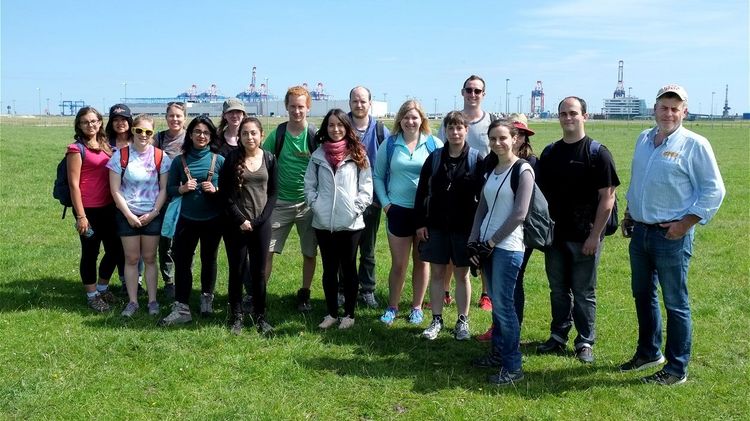International Summer School for Marine Scientists at the University of Oldenburg
Wilhelmshaven/Oldenburg. How does one create a mathematical model from environmental data? International members of the rising generation of marine researchers presently get acquainted with fundamental traits of modern scientific data processing.
The 2017 international ICBM Summer School is entitled „Introduction to Data Analysis and Ecosystem Modelling“. The 16 participants of an advanced training are going to collect environmental data by measuring, counting and weighing during their excursions through the coastal and wadden areas of the southern North Sea until August 12. "This way, the young scientists will get a deeper notion of what is going on in the system Wadden Sea“, says geochemist Dr. Juergen Koester, who is leading the current ICBM summer school, along with Dr. Jan Freund, a physicist and mathematical modeller at the ICBM. „Moreover, they will learn what, on a professional level, experimental scientists can expect from mathematical modellers and vice versa“. Subsequently, the participants would get to know at the Wilhelmshaven as well as the Oldenburg site of the institute how to process these data for mathematical models.
Furthermore, the junior scientists from China, Colombia, France, Germany, Greece, Ireland, Israel, Russia, Spain, the UK and the US will get acquainted with the application of up-to-date modelling tools and techniques at an introductory level. They will train to predict changes of ecological communities as well as those of biodiversity with a common scientific data processing language used on a global scale. "Against the background of accelerating global change this is of increasing importance," Koester shows himself convinced. Amongst other things, the summer school participants would gain insight in how mathematical models could provide a basis for decision making to countersteer these trends on regional to global scale.

![[Translate to English:]](/f/5/_processed_/3/2/csm_ICBM-Logo-transparent-_91fe1c6774.png)
